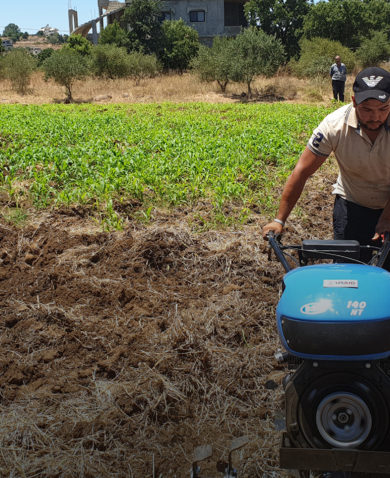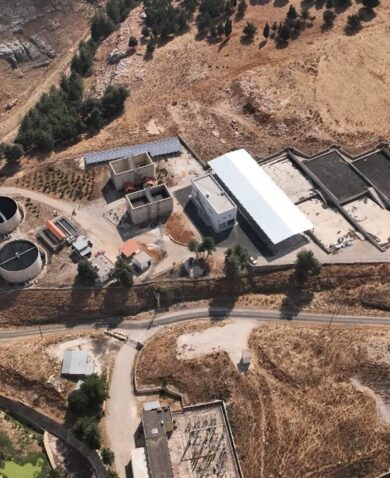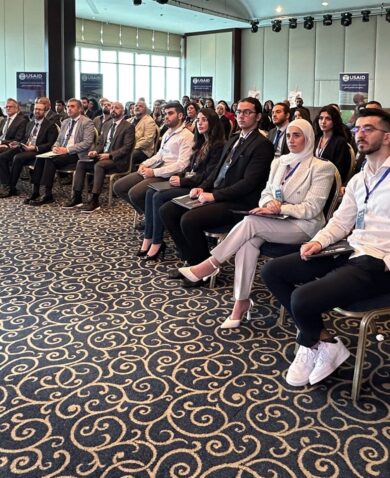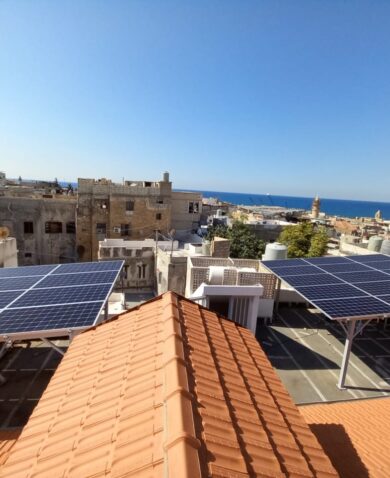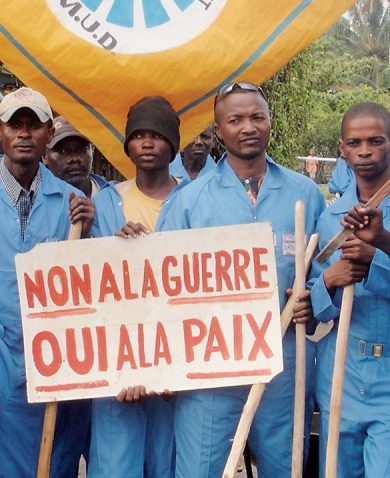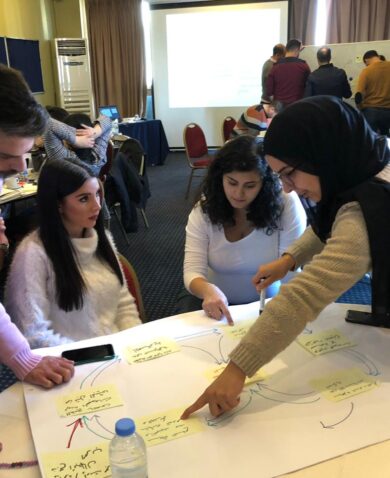
Chemonics News
News: Chemonics Publishes ‘Elite Bargains and Political Deals Toolkit’ to Bolster Peace and Stabilization Programs
February 1, 2021 | 3 Minute ReadA new toolkit on how to map out elites' roles in conflict systems and incorporate these understandings into local peace, stabilization, and resolution efforts.
The practical guide provides a means to analyze power dynamics in local conflicts. The approaches and activities contained support organizations to develop conflict mitigation, resolution, and prevention techniques that reflect the underlying political and cultural factors that drive conflict.
The free, open-access toolkit provides organizations with a step-by-step guide on how to plan and run a two-to-four-day workshop on applying “Elite Bargains and Political Deals” (EBPD) theory in community-level conflict settings. The workshop explains foundational EBPD concepts and supports local organizations to translate theory into practical peace and stabilization activities.
Peacebuilding and stabilization efforts must consider the informal power structures that drive conflicts. EBPD theory supports peacebuilders and peace enablers to uncover different groups’ and institutions’ informal power bases. By acknowledging the role that ‘elites’ play in reducing and resolving violence, the toolkit supports implementors to identify and develop effective ‘political deals’ and ‘bargains’ that help resolve local conflicts.
“Elite Bargains and Political Deals theory allows development organizations to uncover the drivers of conflict and its potential solutions. Understanding local power structures and influential groups’ motivations is key to encouraging elites to cooperate rather than resorting to physical violence to pursue their interests,” said Michael Shaw, technical contributor to the toolkit and a director at Chemonics International.
To build on the publication of the toolkit, an online panel discussion titled ‘The Politics of Peacebuilding: How to Engage Elites in Constructive Conversation’ will take place on March 2nd. By bringing together researchers who developed the ‘Elite Bargains and Political Deals’ theory with implementers who piloted the approach in conflict settings, the discussion will investigate the effectiveness of elite-focused conflict resolution methods, with an emphasis on how it can be practically applied to programming. Register your interest for this open-to-all event by following this link.
What does the Toolkit Contain?
The toolkit begins with an explanation of EBPD theory and the types of conflict that it seeks to address. It defines the terms ‘elites’ and ‘elite bargains’ to immerse the reader in the foundational concepts that underpin EBPD programming. Examples from Mali, Yemen, and Colombia help ground the theory and provide a detailed rationale for its use.
An in-depth guide to the planning and implementation of the two-to-four-day workshop forms the bulk of the toolkit. The toolkit’s appendix contains customizable worksheets and learning materials that workshop leaders can use and adapt as they see fit.
The workshop first guides participants through the process of developing an understanding of why a conflict is happening, and the roles of ‘elites’ within conflict scenarios, through the lens of EBPD theory. Participants are then shown how to use data-driven approaches to verify the elements of their conflict narrative, particularly the relationships between ‘elites’ and other groups.
Once the conflict narrative has been verified, participants learn how to develop a theory of change that articulates the attitudinal and behavioral changes that ‘elites’ and other groups must undergo to achieve peace. The final set of activities guides participants to apply their new understanding of conflict to developing EBPD-informed interventions. Participants are encouraged to identify and assess their own and others’ ability to influence specific ‘elites’.
The toolkit also provides participants with guidance on how to set up monitoring and evaluation systems. These systems support participants to sustainably adopt EBPD theory in their future activities and measure the effectiveness of programming.
Tried-and-tested Methods and Approaches
With funding from the British Embassy in Bamako, Mali, Chemonics International’s Technical Assistance to the Civic Engagement: Identity and Citizenship Project (AT-PECIC) program tested new EBPD techniques and devised an EBPD workshop to introduce local NGOs to the theory. By adopting Chemonics’ tools and techniques the NGOs went on to apply the conflict narratives they developed to ongoing land disputes, at the communal and even the household levels. The success of these initiatives motivated the report’s authors to create a flexible and adaptable toolkit to support other implementors to deliver EBPD workshops.
The toolkit is intended for any organization, including government ministries, local government entities, civil society organizations, and private sector enterprises involved with peace and stabilization programming. The authors developed the toolkit to allow users to apply the material to the cultural, political, and geographic context they are operating within.
“Although grounded in the realities of implementing peacebuilding and stabilization activities in Mali, the toolkit’s strength lies in its flexibility. Irrespective of geography, the methodology provides a blueprint for developing solutions to a diverse array of conflict and stabilization issues.” Todd Diamond, a contributing author to the toolkit and director at Chemonics International.
The Authors and Genesis of the Report
The Elite Bargains and Political Deals Toolkit was written by Todd Diamond, project director on the Mali AT-PECIC project, Jaclyn Grace, project manager on the Mali AT-PECIC project, and Daniel Emory, project manager on the AT-PECIC project. Technical contributions were provided by Michael Shaw and Karana Olivier.
The Elite Bargains and Political Deals Toolkit would not have been possible without the immensely valuable contributions of experts in the field of EBPD theory. Gratitude and credit go to the UK Government’s Stabilisation Unit, in particular the authors of its EBPD paper, Christine Cheng of King’s College London, and Jonathan Goodhand and Patrick Meehan, both of SOAS University of London. Thanks also to Jenny Jones and Mahamane Djitteye of the Sahel Conflict, Stability and Security Fund for their support.








